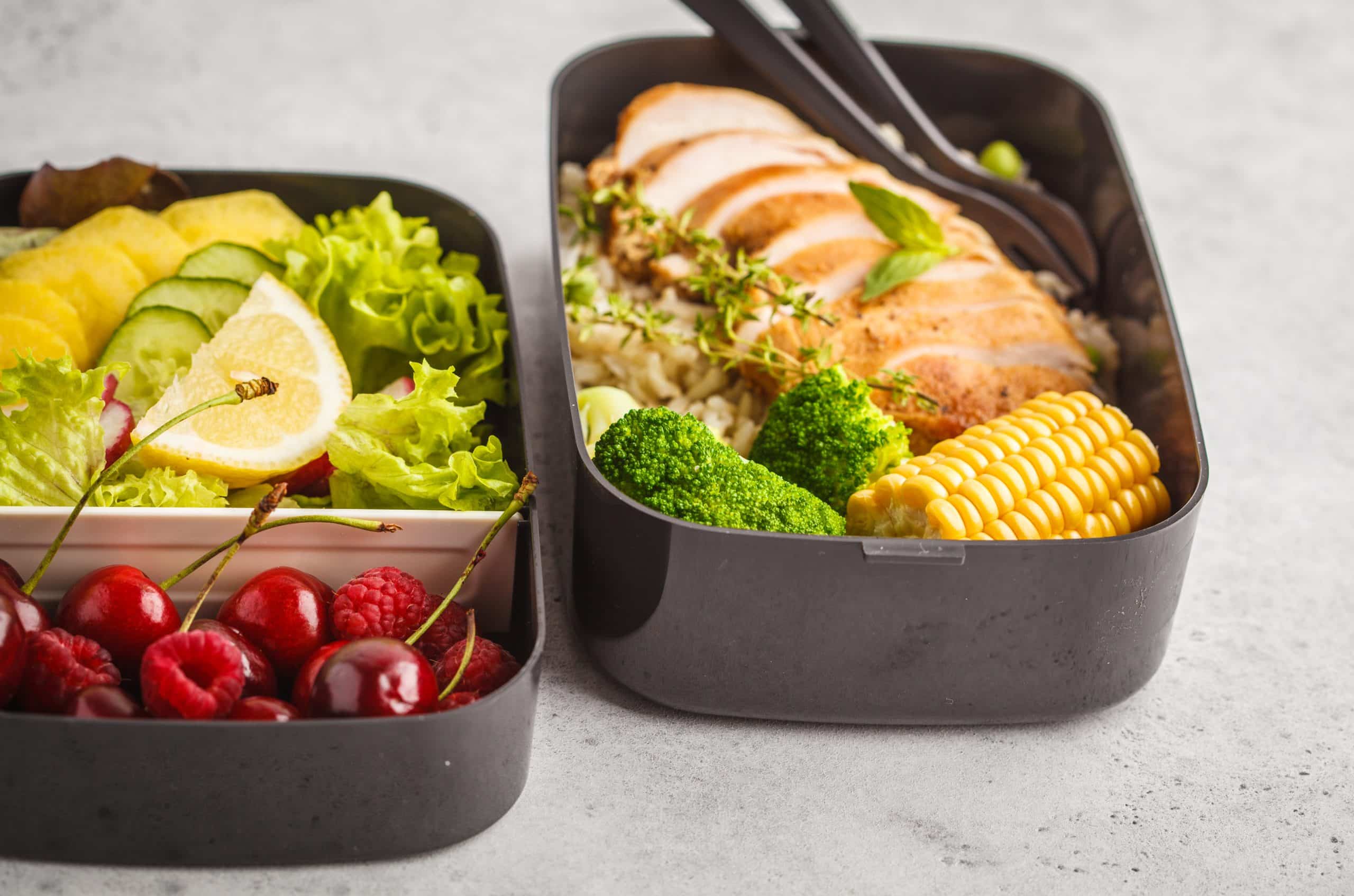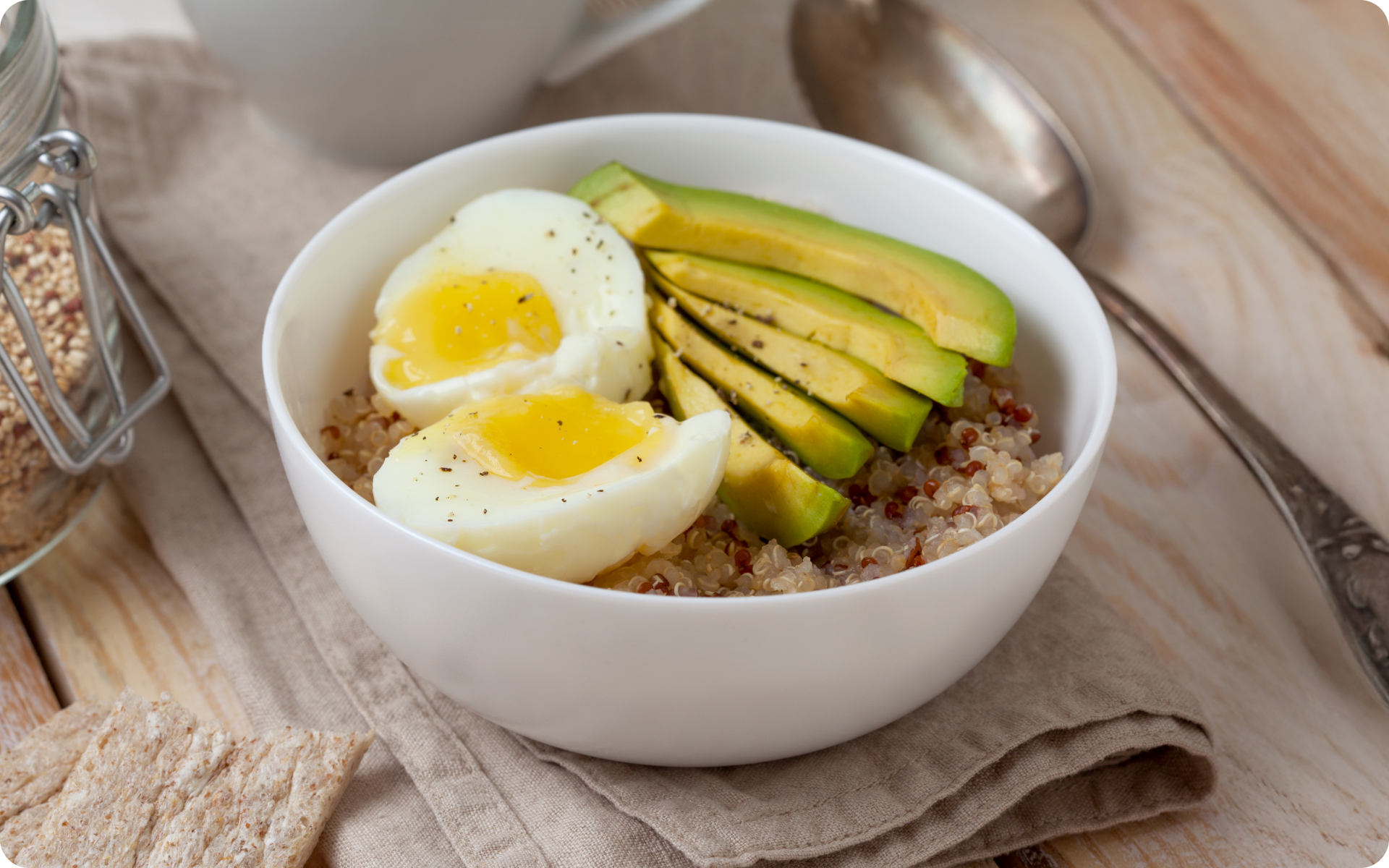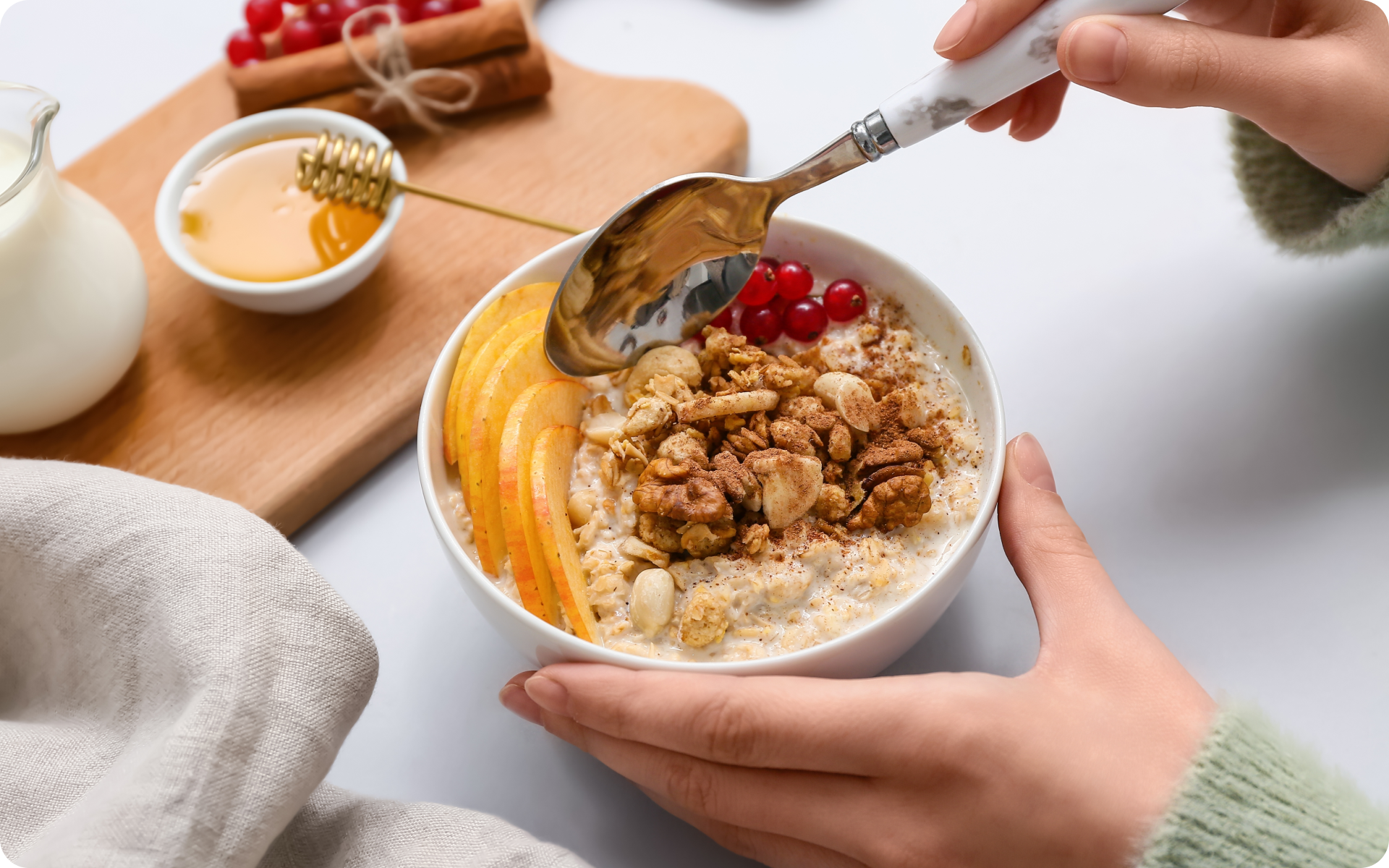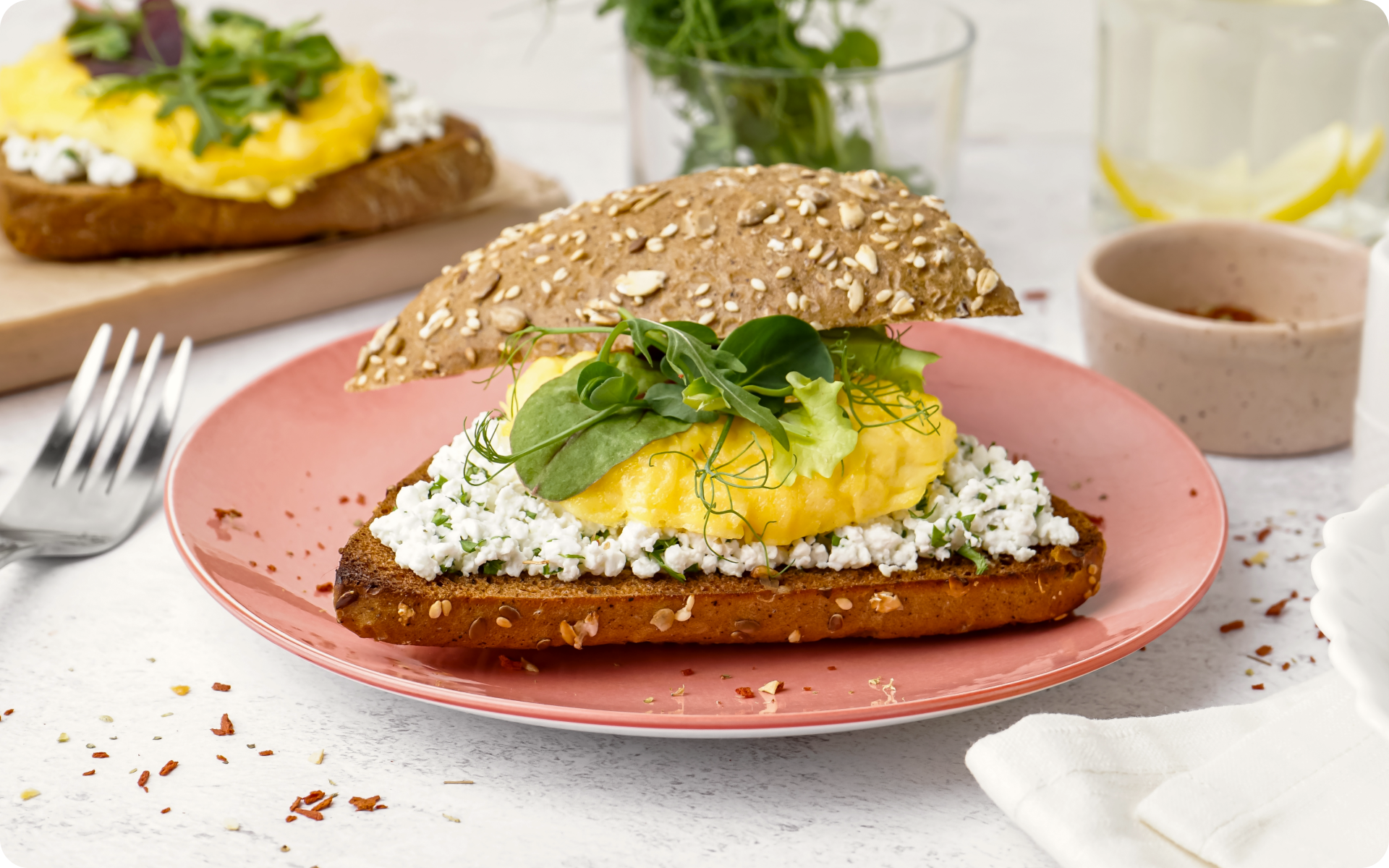One of the 1650-calorie meal plans might help you shed pounds, tone up, or even enjoy enough protein as a vegetarian. Still, you may wonder if 1600 calories a day is enough for a healthy eating plan. You may be worried that it won’t cut calories enough for weight loss.
Fortunately, our 1650-calorie meal plans follow essential tips, facts, and guidelines. Every answer to your burning questions awaits. Let’s go!
Can You Lose Weight on 1650 Calories a Day?
You may enjoy these benefits on a 1650-calorie meal plan:
However, these benefits depend on individual factors and aspects of your 1650-calorie meal plan. Let’s discover some basic facts about the meal plan before diving into them.
Basic 1650-Calorie Meal Plan Facts
Is it safe to eat a limited number of calories daily, how may it benefit you, and which age groups should follow 1650-calorie meal plans? Let’s answer these questions before enjoying meal plans suitable for different needs.
Is it Safe to Eat 1600 Calories a Day?
The 2020-2025 Dietary Guidelines for Americans recommends adult women have 1600-2400 and men have 2200-3000 calories daily, depending on age and activity level, to sustain a healthy weight (5). 1600 calories is recommended for women over 50 who are sedentary, while younger and more active women will require more calories to maintain their weight. Women who want to lose weight might also fall into the 1600-calorie range to create a calorie deficit.
How Much Weight Will I Lose Eating 1600 Calories a Day?
The Dietary Guidelines recommends 1600-2400 calories for women and 2200-3000 for men daily to sustain a healthy weight (5). Individual needs will fall somewhere within those ranges based on factors such as age and activity level. Meanwhile, the Mayo Clinic suggests a 500-calorie deficit daily should help you lose ½ to 1 pound weekly (4).
Both men and women can lose weight on a 1650-calorie meal plan, depending on their individual energy needs which are influenced by body size, activity level, and other factors. For some men, 1650 calories per day will be too low, especially if they are physically active. Talk to a registered dietitian or healthcare provider for individualized recommendations. There are also online calculators and apps that can help you estimate your individual needs and set realistic goals.
There are many popular diets promoted for weight loss, including low carbohydrate diets. The Department of Food and Science Nutrition in Greece reviewed seven randomized controlled trials to identify clinical evidence to support low-carb diets for weight loss (3).
Low-carb meal plans prove effective in reducing body mass index (BMI) and total body fat percentages. In addition, low-carb diets may help reduce blood pressure, triglycerides, and cholesterol, and they may promote diabetes management by improving blood glucose levels.
Ultimately, any diet can work for weight loss as long as a calorie deficit is created. So choose something that will be easy for you to follow and that fits best into your lifestyle. Let’s discover macros and micronutrients to help support other health goals.
Betterme will keep you laser-focused on your weight loss journey! Nutrient-packed meal plans, fat-blasting workouts, galvanizing challenges and much more. Try using the app and see for yourself!
What Are the Macros for a 1600-Calorie Diet?
The macros for a 1600-calorie diet also let you track and monitor other parameters if you have specific goals, such as women having fewer carbs or vegetarians getting more protein.
Carbs
Let’s begin with the macros breakdown for women seeking weight loss. If following a low carbohydrate diet, you might eat 10- 26% of your calories from carbs daily. (13). Carbs are four calories per gram, so the low-carb guidelines mean you would aim for 40-104 grams on a 1600-calorie diet. The Institute of Medicine suggests that Americans get 45-65% of their calories from carbohydrates, so for a more balanced diet, you can aim for 180-260 grams of carbs daily on 1600 calories. A moderately low-carb diet would range from 104-180 grams of carbohydrates on a 1600-calorie diet.
Protein
Eating more protein can help you feel full for longer and can help maintain muscle mass while losing weight. The minimum protein requirements for healthy adults are 0.8 grams per kilogram of body weight per day, but increasing this to between 1 and 1.5 grams per kilogram might be beneficial while trying to lose weight. Even more might be needed, along with strength training, to increase muscle mass. A meta-analysis of 74 randomized controlled trials in Canada found that 1.6 grams or more of protein per kilogram of body weight daily with resistance training helped individuals younger than 65 improve lean body mass. Older individuals did well with 1.2-1.59 grams per kilogram (18). Determine your individual protein target based on your goals and lifestyle.
Fiber & Fat
A small randomized trial of 145 individuals at the Texas Women’s University found that fiber is an essential macronutrient that may promote weight loss on calorie-restricted diets (10). Fiber can help you feel full for longer, which helps you consume fewer calories overall.
Meanwhile, Boston researchers reviewed 45 papers to discover how healthcare professionals could recommend fiber for optimal health (9). The average adult recommendation is 25-30 grams daily.
Finally, healthy fats are essential macronutrients. Harvard University recommends good fats, including monounsaturated and polyunsaturated, which may help lower the risk of heart disease, especially when they replace saturated fats in the diet (8).
20-35% of your total calories should come from fat, with 10% or less coming from saturated fat.
What Age Should I Have 1600 Calories?
The table shows the calorie requirements for different age groups assigned male at birth (AMAB) or female at birth (AFAB) from the American Dietary Guidelines (5):
Age
AFAB Daily Calories
AMAB Daily Calories
2 to 4 years
1000-1400
1000-1600
5 to 8 years
1200-1800
1200-2000
9 to 13 years
1400-2200
1600-2600
14 to 18 years
1800-2400
2000-3200
A 1650-calorie intake may be suitable for some AMAB children over two, or some AFAB children over five. However, children should not be on calorie-limited meal plans and must eat essential macro and micronutrients to develop and grow (14). Discuss any child feeding questions with your pediatrician..
1650 Calories Meal Plans
We have a 1600-calorie meal plan that also fits a 1650-calorie meal plan (low-carb) to lose weight. In addition, we have a 1650-calorie meal plan for bulking and pescatarians. Each will also include daily macros for carbs, fat, protein, and fiber.
7-Day 1650-Calorie Meal Plan for Weight Loss (low-carb)
Our 1650-calorie meal plan (low-carb) may help you shed pounds by also cutting down on carbs. The recipes and macros are courtesy of Eat This Much (6).
Day 1
- Breakfast: Turkey egg white omelet with almond butter and celery
- Lunch: Paleo avocado tuna salad with 1 cup of blueberries
- Snack: Basic protein shake
- Dinner: Summer pepper and tomato salad with Italian eggs
Macros: 1647 calories, 78.9 g net carbs, 93.3 g fat, 107.6 g protein, and 29.4 g fiber (6)
Day 2
- Breakfast: Ham and veggie omelet with mushroom and pepper tossed salad
- Lunch: Chia pudding with 1 oz. almonds
- Snack: Red pepper and tomato salad
- Dinner: Maple glazed chicken and lemon avocado salad
Macros: 1650 calories, 80 g net carbs, 90.5 g fat, 91.9 g protein, and 49.8 g fiber (6)
Read more: A Beginner Intermittent Fasting Meal Plan To Fit Your IF Journey
Day 3
- Breakfast: Brazilian chicken salad
- Lunch: Simple lemon pepper tuna with blue cheese and veggie salad
- Snack: Cauliflower and tahini
- Dinner: Zucchini scramble with avocado, strawberry, and spinach salad
Macros: 1646 calories, 69.8 g net carbs, 96 g fat, 106.9 g protein, and 32.3 g fiber (6)
Day 4
- Breakfast: Pumpkin protein pancakes with peppers, cucumber, and avocado salad
- Lunch: Keto spicy tuna roll with mixed greens sliced cucumber and avocado
- Snack: Blueberry vanilla Greek yogurt
- Dinner: Feta and veggie salad with rosemary lemon grilled scallops
Macros: 1650 calories, 64.4 g net carbs, 87.4 g fat, 132.3 g protein, and 28 g fiber (6)
Day 5
- Breakfast: Shrimp avocado mango salad with turkey and avocado wrap
- Lunch: Blueberry vanilla Greek yogurt and pineapple cottage cheese with lime
- Snack: Quick buffalo chicken salad
- Dinner: Baked coconut cilantro tilapia with veggie apple smoothie
Macros: 1658 calories, 74.5 g net carbs, 79.5 g fat, 146.6 g protein, and 25.3 g fiber (6)
Day 6
- Breakfast: Chicken and avocado salad
- Lunch: Macha green tea chia pudding and turkey and avocado wrap
- Snack: Feta cucumber boats
- Dinner: Grilled steak with pepper relish and pineapple cottage cheese with lime
Macros: 1646 calories, 77.6 g net carbs, 87.5 g fat, 115.5 g protein, and 30.7 g fiber (6)
Day 7
- Breakfast: Strawberry yogurt smoothie with sauteed mushrooms
- Lunch: Brussels sprout slaw with tuna and avocado salad
- Snack: Chia cottage cheese with blueberries
- Dinner: Egg white spinach omelet with apples and almond butter
Macros: 1656 calories, 69 g net carbs, 97 g fat, 111.2 g protein, and 30.2 g fiber (6)
7-Day 1650-Calorie Meal Plan (High-Protein)
The 1650-calorie meal plan for bulking suits anyone needing more protein. This is also a low carb meal plan. The meals and daily macros are courtesy of Strongr Fastr (17).
Day 1
- Breakfast: Green protein shake with sunflower seeds
- Lunch: Ranch pork chops, mashed sweet potatoes with butter, and olive oil drizzled lima beans
- Snack: Milk protein shake with a boiled egg and apple sauce
- Dinner: Broiled tilapia parmesan with olive oil drizzled broccoli
Macros: 1647 calories, 71 g carbs, 79 g fat, 143 g protein, and 20 g fiber (17)
Day 2
- Breakfast: Double chocolate protein shake with a kiwi
- Lunch: Firecracker shrimp with quinoa and a simple mozzarella and tomato salad
- Snack: Instant oatmeal with water and milk
- Dinner: Chicken-broccoli sweet potato bowl with roasted peanuts
Macros: 1578 calories, 132 g carbs, 42 g fat, 143 g protein, and 25 g fiber (17)
Day 3
- Breakfast: Scrambled eggs with spinach, parmesan, and tomato with cottage cheese and honey
- Lunch: Beef broccoli rice bowl with edamame and beet salad
- Snack: Beef jerky and edamame
- Dinner: Baked garlic parmesan chicken with flavored rice mix and olive oil drizzled broccoli
Macros: 1574 calories, 111 g carbs, 54 g fat, 142 g protein, and 19 g fiber (17)
Day 4
- Breakfast: High-protein scrambled eggs with string cheese
- Lunch: Chunky canned soup (not the creamy kind)
- Snack: Pork rinds
- Dinner: Turkey broccoli rice bowl with low-fat Greek yogurt
Macros: 1614 calories, 107 g carbs, 62 g fat, 139 g protein, and 18 g fiber (17)
Day 5
- Breakfast: Protein Greek yogurt with mixed nuts
- Lunch: Balsamic chicken breast with lentils and roasted tomatoes
- Snack: Plain yogurt with cherry tomatoes
- Dinner: Grilled chicken sandwich with an orange
Macros: 1577 calories, 117 g carbs, 45 g fat, 161 g protein, and 15 g fiber (17)
Day 6
- Breakfast: Broccoli and cheddar egg muffins
- Lunch: Teriyaki chicken with broccoli and lentils
- Snack: Small granola bar with cherry tomatoes
- Dinner: Avocado tuna salad with sunflower seeds
Macros: 1609 calories, 70 g carbs, 73 g fat, 143 g protein, and 25 g fiber (17)
Day 7
- Breakfast: Veggie Mason jar omelet
- Lunch: Marinated chicken breast with sauteed peppers and onions
- Snack: Low-fat Greek yogurt with edamame
- Dinner: BBQ pulled chicken and lime yogurt slaw bowl with chips and salsa
Macros: 1602 calories, 64 g carbs, 58 g fat, 190 g protein, and 16 g fiber (17)
BetterMe app will kick you out of the mental funk, shake off your extra weight, rid you off your energy-zapping habits, and help you sculpt the body of your dreams. Intrigued? Hurry up and change your life for the better!
7-Day 1650-Calorie Meal Plan (Pescatarian)
Finally, the 1650-calorie meal plan suits pescatarians and is, again, low-carb. The recipes and macros are courtesy of Eat This Much (6).
Day 1
- Breakfast: Scrambled tofu on toast
- Lunch: Peaches and cream protein shake with green salad
- Snack: Peanut butter and carrots
- Dinner: Bean sprout and spinach salad with egg cups
Macros: 1652 calories, 94.8 g net carbs, 98.7 g fat, 110.5 g protein, and 26.7 g fiber (6)
Day 2
- Breakfast: Garlic eggs and cinnamon sugar toast with sea salt
- Lunch: Protein frappe and spinach salad with blackberries
- Snack: Cottage cheese with avocado and tomato
- Dinner: Broccoli tofu pitas and cottage cheese with artichokes and olives
Macros: 1621 calories, 88.4 g net carbs, 89.4 g fat, 120.4 g protein, and 21.6 g fiber (6)
Day 3
- Breakfast: Cottage cheese, spinach, and tomato omelet
- Lunch: Strawberry cottage cheese smoothie and cottage cheese with artichokes and olives
- Snack: Tuna stuffed tomato
- Dinner: Baked cod with Ritz cracker topping and Lebanese tomato and onion salad
Macros: 1634 calories, 78.1 g net carbs, 68.5 g fat, 176.6 g protein, and 16.2 g fiber (6)
Day 4
- Breakfast: Scrambled tofu on toast
- Lunch: Vegan chocolate tofu mousse with mushroom and pepper tossed salad
- Snack: Blueberry vanilla Greek yogurt
- Dinner: Eggs and asparagus scramble with kale avocado salad
Macros: 1642 calories, 87.2 g net carbs, 95.7 g fat, 129.3 g protein, and 28.9 g fiber (6)
Day 5
- Breakfast: Parmesan and mushroom baked eggs with red bell pepper and hummus
- Lunch: Tuna with avocado and simple spinach salad
- Snack: Cottage cheese with spicy tuna
- Dinner: Rosemary lemon grilled scallops and buttered toast with cinnamon
Macros: 1660 calories, 87.9 g net carbs, 81.6 g fat, 150.3 g protein, and 21.1 g fiber (6)
Day 6
- Breakfast: Peanut butter protein oats with microwave poached eggs
- Lunch: Apple granola cookies with vegan tofu egg salad
- Snack: Vanilla protein shake
- Dinner: Curry scramble with sundried tomato and avocado chopped salad
Macros: 1643 calories, 93.8 g net carbs, 92.9 g fat, 121.6 g protein, and 29.9 g fiber (6)
Read more: Vegan Weight Loss Meal Plan and Prep Tips
Day 7
- Breakfast: Over easy eggs and cottage cheese with cucumber and tomato
- Lunch: Red pepper and tomato salad with almond butter and celery
- Snack: Cauliflower and tahini
- Dinner: Pumpkin protein pancakes and chocolate avocado smoothie
Macros: 1647 calories, 88.8 g net carbs, 89.9 g fat, 128.3 g protein, and 32.4 g fiber (6)
For More Meal Plans:
FAQs
How to Survive on 1600 Calories a Day?
The American Dietary Guidelines suggest that some adult men and women can survive on 1600 calories a day, especially if they are trying to lose weight because they need 1600-2400 (women) and 2200-3000 (men) calories to maintain their weights (5). However, it is on the low end for most men and many would need more calories than this, even for weight loss. It’s important to estimate your individual needs and set realistic goals accordingly.
Reducing calorie intake can result in hunger, but increasing protein might help. A small crossover study with 15 men showed that higher protein breakfasts may help suppress appetite by reducing the hunger hormone called ghrelin and slowing the time it takes for food to move from the stomach to the small intestine (7). More research will be needed.
How Many Calories Is Too Little?
Harvard Medical School doesn’t recommend women eat less than 1200 calories a day and men go under 1500 calories daily unless under medical supervision (2). Many experts would argue that these cutoffs should be higher. Eating too few calories may risk your health because you lack essential nutrients.
What Happens if I Eat 800 Calories a Day for a Month?
A randomized controlled trial of 932 overweight individuals in Bulgaria found that rapid weight loss occurred over eight weeks on an 800-calorie diet (12). The more individuals lost in the first and third weeks, the more likely they were to lose 10 kilograms by week eight.
However, this isn’t recommended unless done for medical reasons under close supervision by a physician. Rapid weight loss isn’t good for most people. A small randomized study in Iran found that rapid weight loss helped individuals lose more water weight and lean body mass (16). Meanwhile, slow weight loss helped them lose more total body fat and reduce their waist circumference. Losing weight more slowly also increases the odds of keeping it off.
What Happens if I Eat 700 Calories a Day for a Month?
Harvard Medical School says women shouldn’t have fewer than 1200 calories a day and men shouldn’t have less than 1500 (2). Eating too few calories puts you at risk for nutrient deficiencies. Rapid weight loss isn’t the healthiest long-term benefit you seek, and we don’t recommend the practice.
A small Iranian study found that rapid weight loss helped individuals lose more water weight and lean body mass but slow weight loss reduced waist circumference and total body weight (16). Very low-calorie diets are sometimes done under medical supervision for managing health conditions or preparing for surgery, but they otherwise are not recommended.
Will I Gain Weight on 1600 Calories?
Whether you gain, lose, or maintain your weight at a certain calorie intake level depends on your individual energy needs. Your individual energy needs are influenced by a variety of factors, including age, sex, body size, and activity level.
The 2020-2025 Dietary Guidelines for Americans recommend 1600-2400 calories a day for women to maintain a healthy weight and 2200-3000 for men, depending on age and activity level (5).
Can a 15-Year-Old Eat 1600 Calories?
Boys of this age need 2200-3200 calories daily, while girls need 1800-2400 daily (5). A 15-year-old is still developing and growing and needs more than 1600 calories to fulfill their macro and micronutrient needs (14).
Is 1600 Calories Enough for a Cut?
Women generally need 1600-2400 and men must eat 2200-3000 daily to maintain their weight, depending on age and activity level (5). However, the Mayo Clinic suggests a 500-calorie deficit to lose ½ to 1 pound weekly (4). Finding your individual energy requirements and then subtracting 500 is where you should start if you want to lose weight. For some people, this might result in a target of around 1600 calories, but others may need more (3).
The Bottom Line
Our top 1650-calorie meal plans target weight loss, muscle gains, and pescatarians. However, we include the necessary macros you need to calculate with meal plans to ensure you have every essential nutrient. So, choose your meal plan and start today.
DISCLAIMER:
This article is intended for general informational purposes only and does not serve to address individual circumstances. It is not a substitute for professional advice or help and should not be relied on for making any kind of decision-making. Any action taken as a direct or indirect result of the information in this article is entirely at your own risk and is your sole responsibility.
BetterMe, its content staff, and its medical advisors accept no responsibility for inaccuracies, errors, misstatements, inconsistencies, or omissions and specifically disclaim any liability, loss or risk, personal, professional or otherwise, which may be incurred as a consequence, directly or indirectly, of the use and/or application of any content.
You should always seek the advice of your physician or other qualified health provider with any questions you may have regarding a medical condition or your specific situation. Never disregard professional medical advice or delay seeking it because of BetterMe content. If you suspect or think you may have a medical emergency, call your doctor.
SOURCES:
- Calculating Calories and Fat Grams – Health Encyclopedia (n.d., urmc.rochester.edu)
- Calorie Counting Made Easy – Harvard Health (2020, harvard.health.edu)
- Clinical Evidence of Low-Carbohydrate Diets against Obesity and Diabetes Mellitus (2023, ncbi.nlm.nih.gov)
- Counting Calories: Get Back to Weight Loss Basics (2023, mayoclinic.org)
- Dietary Guidelines for Americans, 2020-2025 (2020, dietaryguidelines.gov)
- Eat This Much (n.d., eatthismuch.com)
- Effect of a High-Protein Breakfast on the Postprandial Ghrelin Response (2006, pubmed.ncbi.nlm.nih.gov)
- Fats and Cholesterol | The Nutrition Source (n.d., hsph.harvard.edu)
- Fibre Intake for Optimal Health: How Can Healthcare Professionals Support People to Reach Dietary Recommendations? (2022, ncbi.nlm.nih.gov)
- Fiber Intake Predicts Weight Loss and Dietary Adherence in Adults Consuming Calorie-Restricted Diets: The POUNDS Lost (Preventing Overweight Using Novel Dietary Strategies) Study (2019, pubmed.ncbi.nlm.nih.gov)
- Healthy Eating for a Healthy Weight | Healthy Weight, Nutrition, and More (2023, cdc.gov)
- Initial Weight Loss on an 800-kcal Diet as a Predictor of Weight Loss Success After 8 Weeks: The Diogenes Study (2010, pubmed.ncbi.nlm.nih.gov)
- Low-Carbohydrate Diet – StatPearls – NCBI Bookshelf (2023, ncbi.nlm.nih.gov)
- (PDF) Macronutrient Balance and Micronutrient Amounts Through Growth and Development (2021, researchgate.net)
- Preventing Obesity and Eating Disorders in Adolescents (2016, pubmed.ncbi.nlm.nih.gov)
- Rapid Weight Loss vs. Slow Weight Loss: Which is More Effective on Body Composition and Metabolic Risk Factors? (2017, ncbi.nlm.nih.gov)
- Strongr Fastr Workout, Meal, and Nutrition Plans App (n.d., strongrfastr.com)
- Systematic Review and Meta-Analysis of Protein Intake to Support Muscle Mass and Function in Healthy Adults (2022, onlinelibrary.wiley.com)










